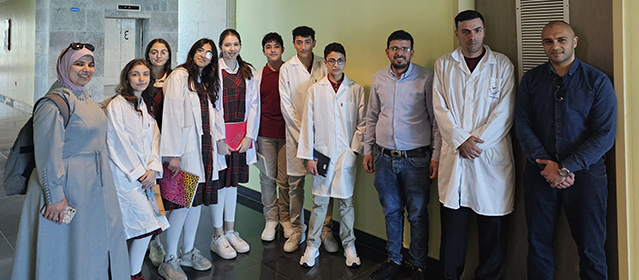
Six students from British Scientific School in Palestine won the Best in Region award for their investigation into heavy metal contamination in untreated wastewater used for irrigation.
Concerned about heavy metals polluting crops grown in the nearby village of Al-Nassariya, team members Batool Zakaria, Raghda Awwad, Majdoline Fahed, Selina Zaid, Kareem Hsoun and Tayseer Abd el Haqset tested the water in a local stream against World Health Organization (WHO) standards.
Students collected water from three places along the stream: furthest away from the wastewater contamination (A), mid-way (B) and at the point at which the wastewater joined the stream (C). The team then delivered samples to the Al Najah National University Scientific Research Center, where they were shown how to analyse them using an inductively coupled plasma mass spectrometry device (ICP-MS). The ICP-MS uses an argon (Ar) plasma – the ICP – to convert the sample into ions that are then measured using a mass spectrometer.
Although the water from points A and B proved to have safe levels of heavy metals, the team found that the water sample from point C contained large amounts of sodium and magnesium and should not be used by farmers to irrigate their crops.
Judges said: 'This team identified a genuine local problem of heavy metal contamination, which has worldwide application. They took samples in triplicate from a range of water sources, and prepared their samples for analysis. They established a relationship with a local lab to produce reliable data which they were able to analyse to produce their results. They showed a good understanding of the science and discussed their results in depth and with intelligence, drawing conclusions that can be used to support the local community.'

